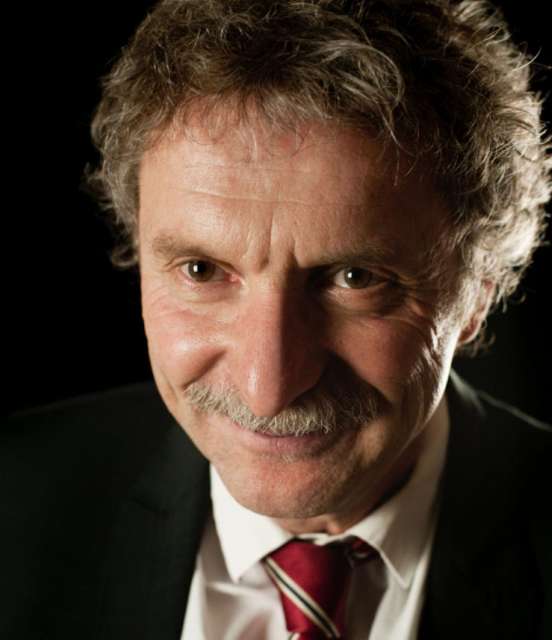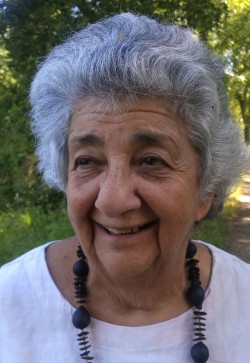The Claustro-Agoraphobic Dilemma: Between Intimacy and Separation in Interpersonal Relationships
November 6, 2021, 9:00 AM - 2:00 PM
Pacific Time
with Heinz Weiss, MD
and Irma Brenman, discussant
This meeting will take place online via Zoom. Once you register, you will receive an email with the link and more information.
*** Registration will close at 5:00 PM on the day before the event. No registrations are possible after this time.
All times listed are in Pacific Time (PST) unless otherwise noted
presented by
New Center for Psychoanalysis
&
Psychoanalytic Center of California
Learning Objectives
By the end of this course, participants will be able to:
- Apply the strategies of the claustro-agoraphobic dilemma to the transference
- Utilize interpretive interventions to illuminate the dilemma to the patient
- Explain the dynamics that underlie the claustro-agoraphobic behavior in relation to trauma
- Analyze how concrete thinking serves as a defense against affect and complicates the countertransference
Presenter

Heinz Weiss, MD, was born in 1955 in Würzburg, Germany, where he later studied medicine and philosophy at university. As a medical student, he wrote a thesis on the theory of consciousness as mapped out in Sigmund Freud’s Interpretation of Dreams, with reference to the work of French existentialist philosopher Jean-Paul Sartre. Later, for his postdoctoral qualification, he explored the intersubjective nature of the transference situation. He went on to train as a psychotherapist and psychoanalyst, in addition to studying clinical neurology. This breadth of knowledge and experience has done much to shape Weiss’ thinking and clinical practice, and led him to produce written work that is theoretically driven while always anchored by the realities of analytic encounters.
Dr. Weiss is the head of the Department of Psychosomatic Medicine at the Robert Bosch Hospital, Stuttgart, a post he has held for over 20 years. He teaches at the University of Tübingen, and is a director of the Sigmund Freud Institute, Frankfurt. In the 1990s he was a Visiting Scientist in the Adult Department of the Tavistock Clinic, London, and he has also taught in Italy, France, the USA, and South and Central America. Since 2012, he has chaired the Education Section of the International Journal of Psychoanalysis.
While Freud is ever-present in his writing, Weiss’s thinking is firmly rooted in Kleinian theory. He draws often upon the work of Klein’s colleagues and later followers, including Herbert Rosenfeld, Wilfred Bion, Betty Joseph, Henri Rey, Edna O’Shaughnessy, Ron Britton and Michael Feldman. The work of Hanna Segal and John Steiner – both of whom supervised Weiss – has made a deep impact on his analytic understanding, not least in relation to borderline states. He edited a Festschrift for Segal and has worked collaboratively with Steiner on many occasions.
Discussant
 Irma Brenman is an internationally renowned Distinguished Fellow, senior Supervising and Training analyst, and past President of the British Psychoanalytic Society. She trained as a Child Psychotherapist at the Tavistock Clinic in London, and as an Adult and Child Psychoanalyst at the Institute of Psychoanalysis, London.
Irma Brenman is an internationally renowned Distinguished Fellow, senior Supervising and Training analyst, and past President of the British Psychoanalytic Society. She trained as a Child Psychotherapist at the Tavistock Clinic in London, and as an Adult and Child Psychoanalyst at the Institute of Psychoanalysis, London.
Target audience: Mental health professionals at the intermediate level
4 CE/CME Credits
Registration: $110 early registration (until 10/29/21) | $125 late Registration | $55 candidate and student rate
For those who would like to learn more about the work of Heinz Weiss, register for the:
Heinz Weiss Preparatory Two-Part Study Group
on October 26th and 28th
CONTINUING EDUCATION CREDIT
IMPORTANT DISCLOSURE INFORMATION FOR ALL LEARNERS: None of the planners and presenters for this educational activity have relevant financial relationship(s)* to disclose with ineligible companies* whose primary business is producing, marketing, selling, re-selling, or distributing healthcare products used by or on patients.
*Financial relationships are relevant if the educational content an individual can control is related to the business lines or products of the ineligible company.
-Updated July 2021-
PHYSICIANS: This activity has been planned and implemented in accordance with the accreditation requirements and policies of the Accreditation Council for Continuing Medical Education (ACCME) through the joint providership of American Psychoanalytic Association and The New Center for Psychoanalysis. The American Psychoanalytic Association is accredited by the ACCME to provide continuing medical education for physicians.”
The American Psychoanalytic Association designates this Live Activity for a maximum of 1.5 AMA PRA Category 1 Credit(s)™. Physicians should claim only the credit commensurate with the extent of their participation in the activity.
PSYCHOLOGISTS: The New Center for Psychoanalysis is approved by the American Psychological Association to sponsor continuing education for psychologists. The New Center for Psychoanalysis maintains responsibility for this program and its content. Psychologist must report CE credits directly to MCEP using this document to verify attendance. Please note that a Psychologist must attend the CE program in its entirety in order to receive credit.
SOCIAL WORKERS, MARRIAGE and FAMILY THERAPISTS (LCSW, LMFT, ASW, IMF, LEP, LPCC, PCCI): The New Center for Psychoanalysis is a continuing education provider that has been approved by the American Psychological Association, a California Board of Behavioral Sciences recognized approval agency
